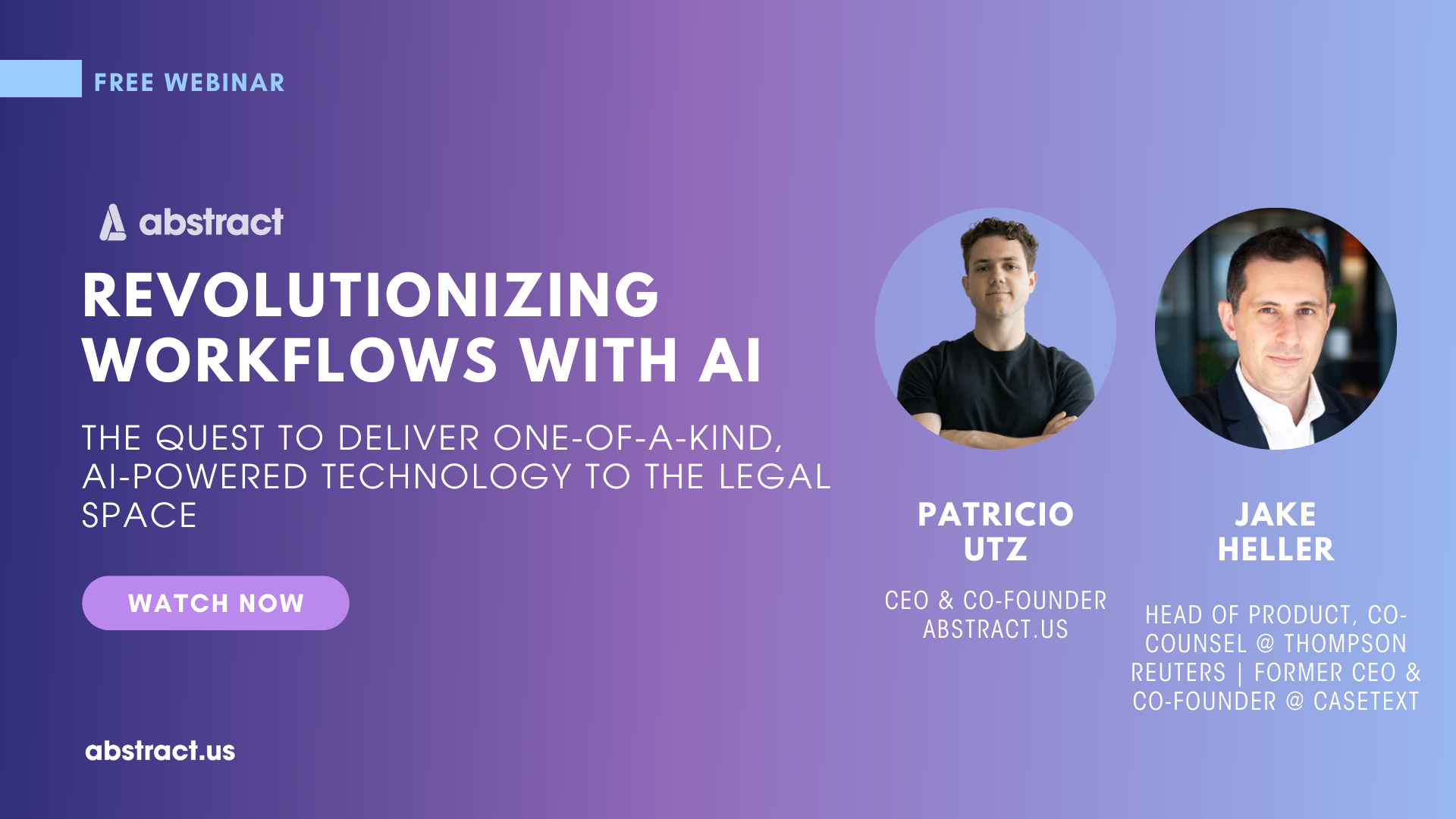
Navigating The Waters of Government Data with AI

AI, AI, AI…it seems as if that’s all that everyone's talking about these days. The applications of AI and its recent innovations are seemingly endless— high schoolers are using tools like ChatGPT to craft essays last minute, while CEOs of Fortune 500 companies are frantically strategizing their most prudent “AI-to-market” approach, lest their business model be overtaken and demised by up-and-coming terminators.
While the hype around AI has grown exponentially in recent months, AI has been central to Abstract’s mission since we started the company in 2019— long before the letters L-L-M were a part of popular Silicon Valley vernacular. The three of us co-founders were frustrated at how much legislation passed on a weekly basis, often changing the very fabric of our democratic system, with most of the population not knowing a single change had occurred. The lack of transparency and accessibility, paired with our frustration led to the creation of Abstract.
Abstract’s focus has been to solve the problem around structuring the seemingly endless oceans of unstructured government data. This data includes over a million records of state legislation heralding back to 1989 (no one has scanned documents past then…for now). By disseminating and organizing this information using AI, we are now able to uncover insights that have never been possible before. For example, thanks to our natural-language-processing algorithm, we can now easily identify legislation that a particular company has supported or opposed, with the click of a button. These insights and level of accessibility are ushering in a new era of transparency shifting the very fabric of government affairs.
Beyond government legislative data, there are millions of documents relevant to every business vertical that are practically inaccessible. These documents are kept on archaic websites, or are written in legalese/industry-speak that is unintelligible to the general public. Advancements made around large language models (LLMs), and AI as a whole, are sure to change that. Large language models, such as OpenAI’s ChatGPT, have billions of “synapses” that were formed by training the algorithm on the internet's historical archives. It was not until recent advancements in computing hardware*, that these models have been able to truly grasp human-like knowledge. Yet by nature, this knowledge is broad, and requires fine-tuning on industry-specific knowledge, for tangible industry-specific applications.
As with the evolution of any technology, challenges will inevitably arise. In the words of our CTO “We have to come together as a community to ensure that these services are contributed to with diverse opinions, perspectives, and training data to ensure that, unlike previous innovations, no one is left behind this time around.” Building a community will position us in a way that will maximize the potential of such a robust tool. At Abstract, we created a community to foster a shared knowledge base dedicated to understanding how to work with unstructured datasets. We’re beyond excited to have welcomed the likes of Trellis.law, and lead engineers from high-tech, who are working on-deck, as we navigate the upcoming tailwinds of this new frontier.
No company will be the sole victor of AI, but together we’ll leverage the greatest advancement of the decade to abstract everything from nascent government bills to complicated legal code. Onwards and upwards towards reducing silos and increasing accessibility across the board. 🇺🇸





.png)

.png)




